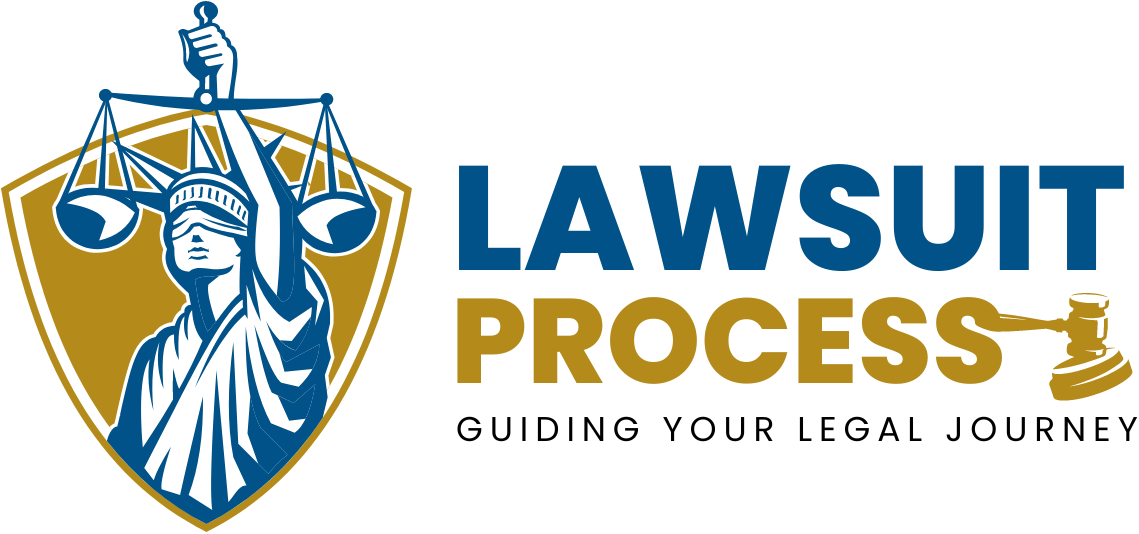Understanding the distinctions between misdemeanors and felonies is essential for navigating the legal system effectively. This knowledge not only informs individuals about the potential consequences of their actions but also aids in making informed decisions when faced with legal challenges.
The following article explores the key differences between these two categories of crimes, providing a comprehensive overview of their classifications, punishments, legal processes, and long-term impacts.
Table of Contents
- Introduction
- Definitions
- Classification of Crimes
- Punishments and Sentencing
- Legal Processes and Court Procedures
- Impact on Criminal Record
- Examples of Misdemeanors and Felonies
- Rehabilitation and Expungement
- Conclusion
- References
Introduction
The legal system categorizes crimes based on their severity, consequences, and societal impact. Understanding the distinctions between misdemeanors and felonies is crucial for comprehending how the justice system operates, the potential penalties involved, and the long-term implications for those accused or convicted. This article delves into the key differences between misdemeanors and felonies, exploring their definitions, classifications, punishments, legal processes, and the lasting effects they have on individuals’ lives.
Definitions
What are Misdemeanors?
Misdemeanors are criminal offenses considered less severe than felonies. They typically involve minor violations of the law and are punishable by less severe penalties. Misdemeanors are often handled in lower courts and may carry consequences such as fines, community service, probation, or short-term imprisonment, usually less than one year.
What are Felonies?
Felonies are serious criminal offenses that carry significant penalties, including lengthy imprisonment, substantial fines, and lasting societal consequences. Felonies encompass a broad range of crimes, from violent offenses like murder and assault to non-violent crimes such as fraud and large-scale theft. Felony charges are processed in higher courts and can lead to imprisonment in state or federal prisons for more than one year.
Classification of Crimes
Categories of Misdemeanors
Misdemeanors are typically categorized based on their severity, often ranging from Class A (most severe) to Class C (least severe), though classifications can vary by jurisdiction. Common categories include:
- Petty Misdemeanors: Minor infractions with minimal penalties.
- Gross Misdemeanors: More serious than petty misdemeanors but less severe than felonies.
Categories of Felonies
Felonies are usually classified into degrees or classes, indicating their seriousness. Common classifications include:
- First-Degree Felonies: The most severe, often involving premeditation or significant harm.
- Second-Degree Felonies: Serious crimes but less severe than first-degree.
- Third-Degree Felonies: Lower-level felonies with moderate penalties.
Each jurisdiction may have its own specific classification system, but the general hierarchy remains consistent across legal systems.
Punishments and Sentencing
Misdemeanor Punishments
Punishments for misdemeanors are generally less severe and may include:
- Fines: Monetary penalties that vary based on the offense.
- Probation: Supervised release with specific conditions.
- Community Service: Required unpaid work in the community.
- Short-Term Imprisonment: In local jails for less than one year.
- Diversion Programs: Alternative programs aimed at rehabilitation without formal charges.
Felony Punishments
Felony punishments are more severe and can include:
- Long-Term Imprisonment: In state or federal prisons for over one year.
- Substantial Fines: Significantly higher monetary penalties.
- Restitution: Compensation to victims for losses incurred.
- Loss of Civil Rights: Including the right to vote, own firearms, or hold public office.
- Death Penalty: In jurisdictions where applicable, reserved for the most severe crimes.
The length and severity of the punishment typically reflect the gravity of the felony committed.
Legal Processes and Court Procedures
Handling Misdemeanors in Court
Misdemeanors are usually handled in lower courts, such as municipal or county courts. The legal process typically involves:
- Arraignment: The defendant is formally charged and enters a plea.
- Pre-Trial Motions: Legal arguments made before the trial.
- Trial: Presentation of evidence and arguments by both sides.
- Verdict: The judge or jury decides the outcome.
- Sentencing: If convicted, the judge imposes the appropriate penalty.
Misdemeanor cases are often expedited, with shorter timelines and less formal procedures compared to felony cases.
Handling Felonies in Court
Felonies are processed in higher courts, such as state or federal courts, and involve more complex procedures:
- Grand Jury Indictment (in some cases): A group reviews evidence to determine if charges should be brought.
- Arraignment: The defendant hears the charges and enters a plea.
- Pre-Trial Motions: Extensive legal arguments and discovery.
- Plea Bargaining: Negotiations between the defense and prosecution to resolve the case without trial.
- Trial: A more formal and extensive trial process.
- Verdict: A unanimous decision is typically required.
- Sentencing: More detailed and severe penalties are imposed.
Felony cases often involve longer durations, more procedural steps, and higher standards of proof.
Impact on Criminal Record
Misdemeanors and Their Long-Term Effects
A misdemeanor conviction can have several long-term effects, including:
- Employment Challenges: Some employers may be hesitant to hire individuals with misdemeanor records.
- Licensing Restrictions: Certain professional licenses may be denied or revoked.
- Housing Issues: Difficulty securing rental housing in some cases.
- Social Stigma: Potential for societal judgment and personal relationships impact.
However, misdemeanors generally have less severe long-term implications compared to felonies.
Felonies and Their Long-Term Effects
Felony convictions carry more significant and lasting impacts, such as:
- Employment Barriers: Many employers conduct background checks that disqualify individuals with felonies.
- Voting Rights: Felony convictions can lead to the loss of voting rights, depending on the jurisdiction.
- Firearm Restrictions: Felons are typically prohibited from owning or possessing firearms.
- Ineligibility for Public Office: Restrictions on holding certain public positions.
- Housing and Education Limitations: Challenges in obtaining housing or educational opportunities.
- Social and Familial Strain: Greater societal stigma and personal relationship challenges.
The severity and permanence of these effects make felony convictions particularly impactful on an individual’s life.
Examples of Misdemeanors and Felonies
Common Misdemeanor Offenses
- Petty Theft: Stealing items of low value.
- Simple Assault: Causing minor physical injury without intent.
- Vandalism: Minor property damage.
- Public Intoxication: Being visibly drunk or under the influence in public.
- Traffic Violations: Serious infractions like DUI (in some jurisdictions).
Common Felony Offenses
- Murder and Homicide: Unlawful killing of another person.
- Rape and Sexual Assault: Non-consensual sexual acts.
- Armed Robbery: Theft using a weapon.
- Burglary: Unlawful entry with intent to commit a crime.
- Drug Trafficking: Large-scale distribution or manufacture of controlled substances.
- White-Collar Crimes: Fraud, embezzlement, and insider trading involving significant financial loss.
These examples illustrate the range of behaviors classified under misdemeanors and felonies, highlighting the varying degrees of severity.
Rehabilitation and Expungement
Opportunities for Misdemeanors
Individuals convicted of misdemeanors may have opportunities for rehabilitation and expungement, which can help mitigate the long-term effects:
- Probation and Rehabilitation Programs: Participation in programs can lead to reduced sentences.
- Expungement: Some jurisdictions allow for the removal of misdemeanor records from public databases after a certain period.
- Pardons: In rare cases, individuals may receive pardons that forgive the misdemeanor offense.
These options provide pathways for individuals to move forward and reduce the impact of misdemeanor convictions.
Opportunities for Felonies
Rehabilitation and expungement for felonies are more challenging but still possible in certain circumstances:
- Parole and Probation: Completion of parole or probation can aid in reintegration.
- Expungement: Limited to specific felonies and often requires waiting periods and demonstrating rehabilitation.
- Pardons and Clemency: High-level forgiveness that can restore certain rights and remove the stigma.
- Certificate of Rehabilitation: In some jurisdictions, this can restore certain civil rights.
Felony expungement is typically more restrictive and may not be available for all types of felonies, making the process more arduous.
Conclusion
Understanding the key differences between misdemeanors and felonies is essential for navigating the legal landscape, whether you’re a defendant, legal professional, or simply an informed citizen. Misdemeanors represent less severe offenses with lighter penalties and fewer long-term consequences, while felonies encompass serious crimes that carry significant punishments and lasting impacts on an individual’s life. Recognizing these distinctions helps in comprehending the justice system’s approach to various criminal behaviors and the importance of legal counsel in managing the complexities associated with different types of offenses.
References
- Legal Information Institute (LII). (n.d.). Misdemeanor. Retrieved from https://www.law.cornell.edu/wex/misdemeanor
- Legal Information Institute (LII). (n.d.). Felony. Retrieved from https://www.law.cornell.edu/wex/felony
- National Center for State Courts (NCSC). (n.d.). Classification of Crimes. Retrieved from https://www.ncsc.org/
- American Bar Association (ABA). (n.d.). Criminal Justice Fact Sheet. Retrieved from https://www.americanbar.org/groups/criminal_justice/
- FindLaw. (n.d.). Differences Between Misdemeanors and Felonies. Retrieved from https://www.findlaw.com/










